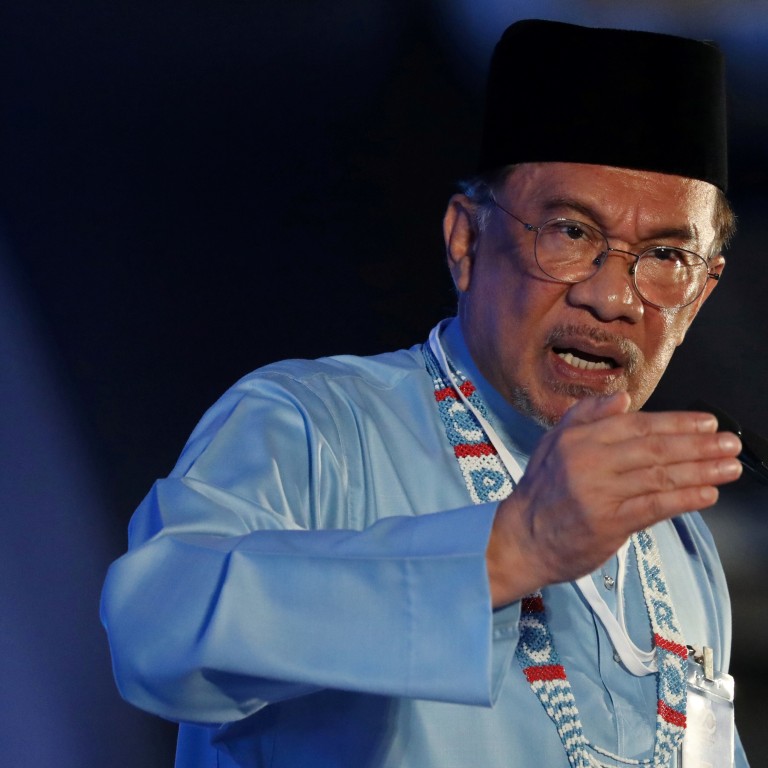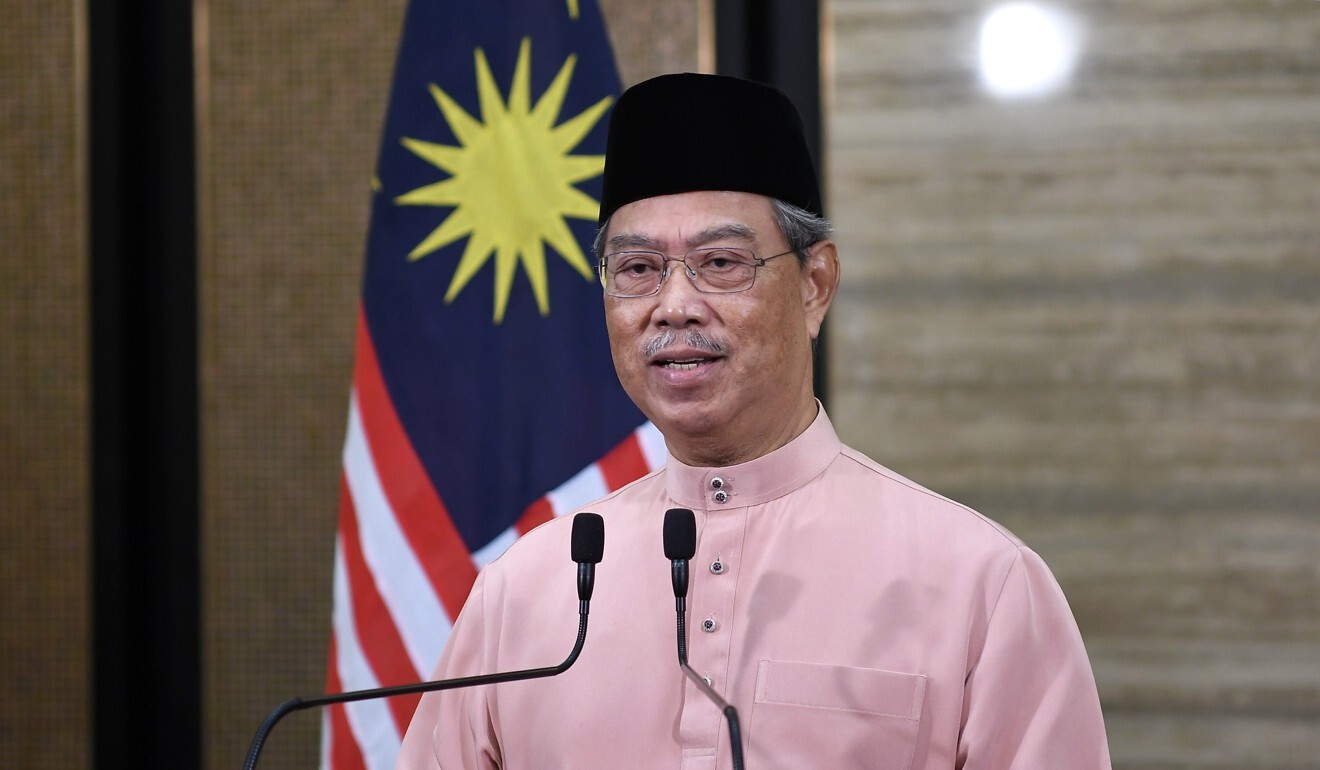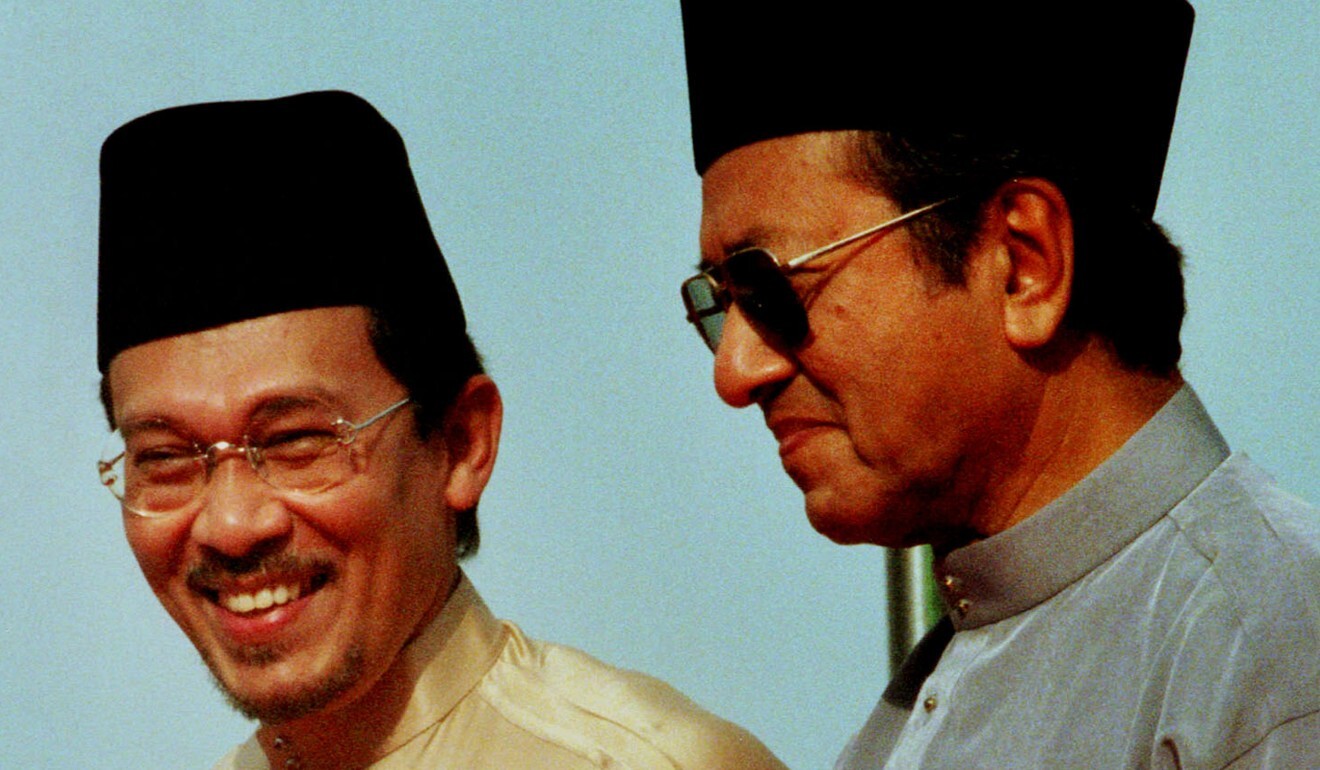
Exclusive | Malaysia: Anwar pans Muhyiddin’s coronavirus economic rescue plan, ‘cordial’ with Mahathir
- The opposition leader says bolder stimulus measures and a detailed post-lockdown road map are urgently needed
- He bemoans a ‘revolting’ regression in civil liberties since Muhyiddin’s shock ascent, adding that the Sabah election will not indicate where the country’s balance of power lies
In an interview with the South China Morning Post, Anwar – the country’s best known reformist icon – also bemoaned what he described as a regression in civil liberties over the past six months, following Muhyiddin’s shock ascent after an ugly political coup.
This turmoil has remained at the forefront of the national consciousness since the multiracial Pakatan Harapan coalition that Anwar leads was dramatically deposed in March, with Muhyiddin’s new Malay-centric Perikatan Nasional alliance clinging to power by a razor-thin parliamentary majority.
But to Anwar, what was more concerning was the current administration’s “failure to address core economic concerns”.
Covid-19 forces Malaysia’s poor to live on instant noodles, skip classes
“They have managed somewhat satisfactorily, I must concede, on the Covid-19 pandemic,” he said. “But then when it comes to prescriptions for the economy, you can find a lack of clarity; No 2, no new initiative; and No 3, [they are] almost in a virtual state of denial.”
The Muhyiddin administration has so far pledged 295 billion ringgit (US$71 billion) in stimulus, of which some 45 billion ringgit – mostly raised through domestic borrowings – will be directly injected into the economy.
Anwar and allies such as former finance minister Lim Guan Eng have urged the government not to pinch pennies, citing the examples of neighbours who have announced larger stimulus packages compared with their respective gross domestic products.

With the government having recently obtained parliamentary assent to increase its debt-to-GDP ratio, Pakatan Harapan politicians have called for direct injections to be doubled to 90 billion ringgit to help small and medium enterprises find their feet as the economy reopens after the March-June lockdown.
Also irking the opposition is Muhyiddin’s move in late August to continue curbs on nightclubs and other entertainment establishments until the end of the year, without offering these businesses additional aid.
Said Anwar: “Yes, stringent rules, strict standard operating protocols, but you have to open up because people have to get back to work … you have to allow foreigners and investors to come. Impose whatever conditions, but do not bar them from participating in investment or economic activity.”
He stressed that he was not suggesting that “nothing was being done”. But “you look at the country, the entire policy framework, you don’t find this focus or emphasis.”
Can Malaysia’s Muhyiddin see out the year as PM, with Mahathir and Umno circling?
Anwar said he would back more stimulus measures if Muhyiddin decided to roll them out in the coming months. But the ruling alliance, he said, was more concerned about giving the impression that “things are generally under control, which is the problem with most governments”.
In the 30-minute interview, the opposition leader painted a far more upbeat picture of the state of his Pakatan Harapan alliance and its political chances, compared with what has been described by Malaysia’s commentariat.
While the spotlight has mainly been on the fragility of Muhyiddin’s administration, which is riven by various intra-coalition disputes, Pakatan Harapan has also had its fair share of troubles.

One of the reasons the coalition came undone in its final months – leaving room for the coup plotters to execute their move – was the strained relationship between Mahathir and Anwar over when power would be handed to the younger politician, as agreed in a pre-election pact.
The two men’s political histories are deeply intertwined, and their rivalry has dominated the country’s politics since the 1990s.
Asked how he would describe the state of the opposition, Anwar said it was “strong and cohesive”. He pointed to joint efforts among the various constituent parties in campaigning ahead of the state assembly election in the eastern Malaysian state of Sabah on September 26.
However, he said he did not believe the result would be an accurate bellwether of national politics, given the current “uncertain or mixed environment”.
The Sabah poll was triggered after chief minister Shafie Apdal chose to have the legislature dissolved ahead of a political coup against him – reminiscent of the one that elevated Muhyiddin to power.
“There you can see [Parti Keadilan Rakyat] is out there in full force in anticipation for the upcoming state elections, supporting friendly parties,” Anwar said of his party.
Malaysia’s Mahathir eyes new role as power broker in country’s politics
He offered a measured response when discussing Mahathir, saying he was “cordial with anybody” when asked about his relationship with the two-time prime minister.
Anwar – who was jailed twice on cases that rights groups say were trumped up, once during Mahathir’s 1981-2003 first stint as premier – said he found the clampdown on free speech and other civil liberties over the six months of the Muhyiddin administration “revolting”.
A spate of police probes into dissenters, including opposition MPs and journalists, have raised fears that progress in these freedoms made during Pakatan Harapan’s 22 months in power will now be undone.
The administration’s hardline stance displayed its “intolerance for anything not essentially mainstream”, Anwar said.
He added that he did not believe citizens would tolerate a clampdown on dissent for long, especially if the criticism was centred on the government’s current economic policy.


